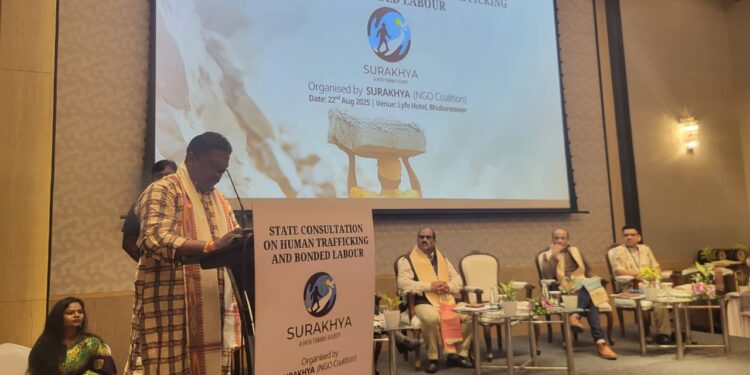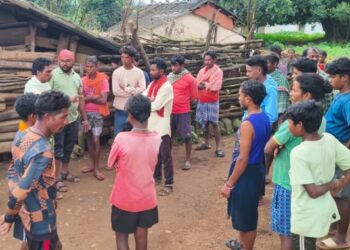Odisha’s Panchayati Raj Minister Rabi Narayan Naik announced an ambitious initiative to create a model village free from bonded labour, marking a significant step toward eradicating human trafficking and exploitation in the state.
Addressing a gathering at the State Consultation on Human Trafficking and Bonded Labour in Bhubaneswar, organised by Suraksha—a coalition of over 30 NGOs—Naik revealed plans to transform Nuapada into a migration-free district, addressing the root causes of bonded labour.
The consultation, held on Friday, brought together stakeholders to discuss the urgent need for stronger measures to combat human trafficking and bonded labour. Naik emphasised the issuance of labour cards to vulnerable workers as a key safeguard against exploitation. “We are committed to protecting our workers and ensuring no one is trapped in bonded labour,” he stated. The minister also accepted a memorandum from Suraksha, agreeing to consider declaring February 9 as Bonded Labour Abolition Day in Odisha, following the lead of states like Tamil Nadu, Telangana, and Andhra Pradesh.
The Suraksha coalition presented a detailed appeal, urging the state government to formulate a comprehensive State Action Plan (SAP) with clear timelines and adequate budget allocation to address prevention, rescue, rehabilitation, reintegration, and prosecution of bonded labour cases. They also called for an Odisha-specific Standard Operating Procedure (SOP) to streamline coordination among departments such as police, labour, revenue, and women and child development. “An SAP provides a long-term framework, while an SOP ensures timely, coordinated action,” said Amiya Das, a coalition member, citing successful models in Tamil Nadu, Karnataka, and Delhi.
The coalition highlighted that formal observance of February 9 would raise awareness through campaigns, cultural programs, educational events, and surprise inspections. Such measures, they argued, would keep the issue of bonded labour in the public eye and strengthen enforcement of the Bonded Labour System (Abolition) Act of 1976.
Naik’s announcements signal a renewed commitment to tackling bonded labour and human trafficking, issues that continue to plague vulnerable communities in Odisha. With Nuapada as a potential model, the state aims to set a precedent for others to follow, fostering a future where exploitation is replaced with opportunity.




























